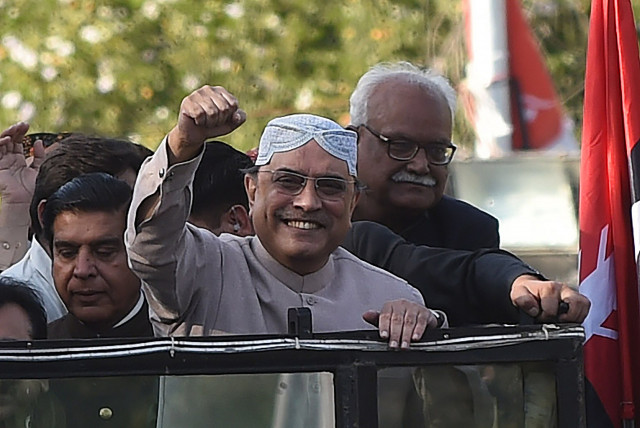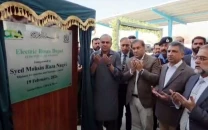Zardari vetoes PPP’s demand of holding polls within 90 days
Former president emphasizes on 'economy over politics'; says country needs to focus on SIFC projects

Asif Ali Zardari, the president of Pakistan Peoples Party Parliamentarians (PPPP), on Saturday vetoed his party’s consistent stance in favour of conducting elections within 90 days. The former president of Pakistan stated that ‘completing delimitation exercise was necessary before holding polls.’
In a statement, the PPP leader maintained that the Election Commission of Pakistan (ECP) is bound to redraw the boundaries of all constituencies after a fresh and updated census. “The ECP would conduct elections as per the Constitution, and my party has full confidence in the chief election commissioner and all ECP members,” he said.
Asif’s contrasting statement came a day after his son former foreign minister and PPP chairman Bilawal Bhutto Zardari showed some flexibility in his earlier stance of seeking polls within 90 days.
Bilawal and the PPP leadership had previously moved the courts and the interim government to hold polls within 90 days. However, on Friday, Bilawal suggested extending the exercise to 120 days if not possible within the 90-day constitutional timeframe.
As opposed to the PPP, the PMLN leadership appears to be fine with polls taking place in January or February next year.
Read PPP signals flexibility on election date
Asif, on the other hand, addressed the pressing concern of Pakistan’s deteriorating economy. He said that the country and its economy were above everything else and everyone should "put economy over politics as it is the need of the hour".
“The caretaker government should complete all Special Investment Facilitation Council (SIFC) projects as soon as possible and put the country on the path of development,” Zardari said in the statement. “The country is currently going through an economic crisis and for that, we should worry about the economy first instead of politics.”
The SIFC is a hybrid forum that has recently been set up with a mandate to revive Pakistan’s economy and attract foreign investment, aimed at getting rid of foreign bailouts by the International Monetary Fund (IMF) and other multilateral institutions.
The former PMLN-led government had enhanced the mandate of the caretaker government by making an amendment to the ECP Act of 2017 just before it ended its term by dissolving the National Assembly three days before it could complete a five-year term.
Through the amendment, in Section 230 of the ECP act, the caretaker government has been granted powers to take important decisions on existing bilateral or multilateral agreements.
Read more PPP, PML-N split on election timing
President Dr Arif Alvi, political parties, lawyers, think tanks and other stakeholders have lately been debating over whether the polls should be held within 90 days, or the ECP should delay polls until the completion of the delimitation process.
The debate began after the previous coalition government comprising Pakistan Muslim League-N (PML-N), PPP and several other parties had notified census results in a meeting of the Council of Common Interests (CCI) mere days before it dissolved the National Assembly.
The move was apparently aimed at getting an additional month for the election campaign but it left the ECP and others in a fix. The ECP has not announced a polling date yet even after reducing significant time for redrawing the boundaries of constituencies.
Following the CCI’s decision to dissolve the NA, ECP had first announced that it would complete the delimitation exercise by December 14 but then reduced it to November 30. However, both the dates fall after the 90-day constitutional limit of holding elections once the assemblies are dissolved. The NA was dissolved on August 8.
Earlier, the PTI government dissolved assemblies hoping to have snap polls within the 90-day period in Punjab and Khyber-Pakhtunkhwa (K-P). However, despite the Supreme Court’s (SC) intervention, polls in the two provinces did not take place.



















COMMENTS
Comments are moderated and generally will be posted if they are on-topic and not abusive.
For more information, please see our Comments FAQ